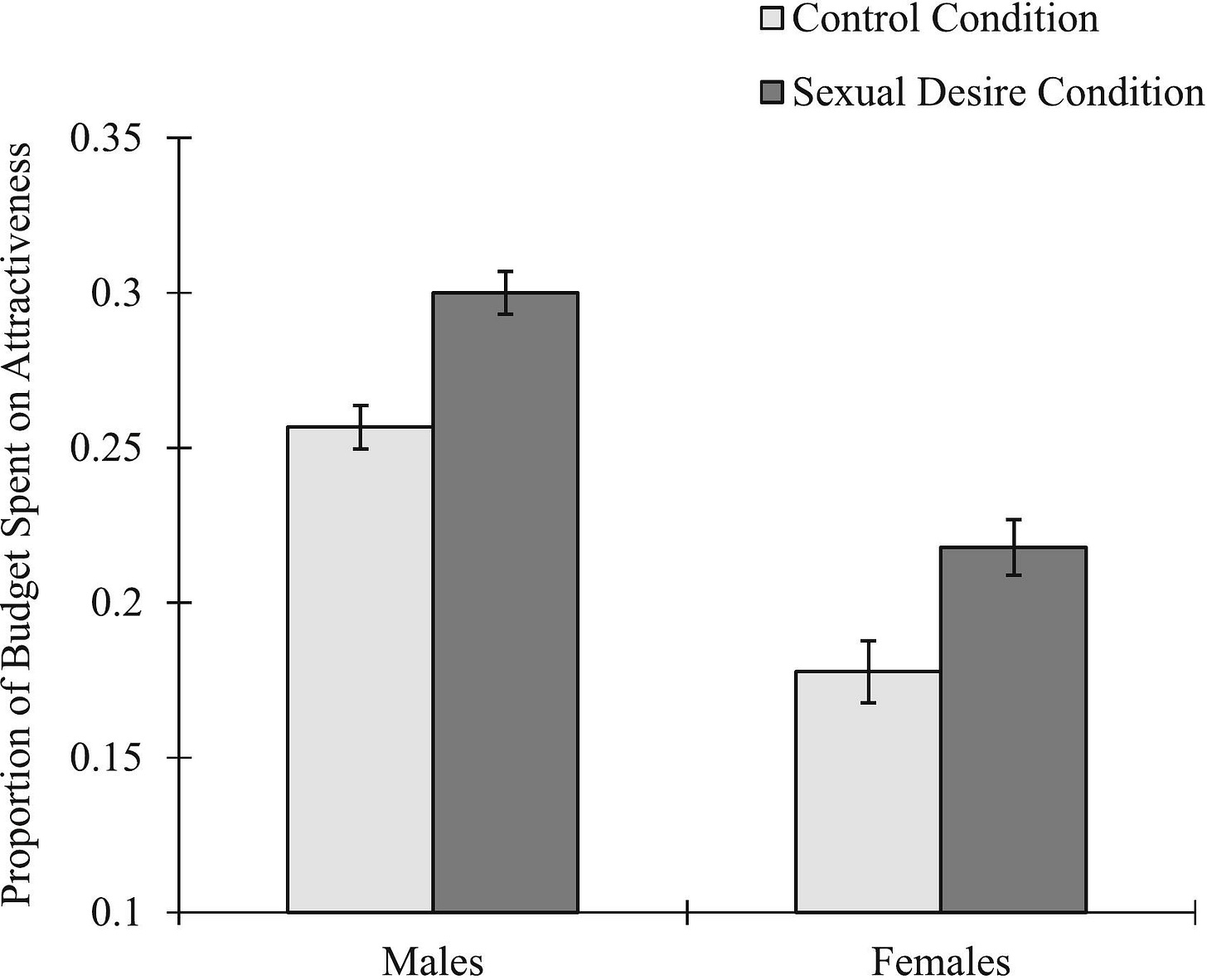12 New Findings on Love and Romance
A special edition Linkfest

In Case You Missed It…
Love and romance lie at the heart of some of our highest highs and lowest lows in life - and yet, after centuries of philosophizing and decades of scientific investigation, they remain among our greatest mysteries. Why do men care so much about a partner’s looks? Why do people pair up with individuals similar to themselves? Why do some couples thrive while others crash and burn? And how do factors like personality, intelligence, and sexual orientation shape our romantic relationships?
In this special edition Linkfest, I round up the latest research on the psychology of love and romance. From the financial consequences of dating the boss to the effects of pornography on attraction to real-world partners, the findings are surprising, illuminating - and potentially even useful.
1. Sexual Desire Drives the Preference for Good Looks in a Mate
It’s no secret that, on average, men place more importance than women on good looks in a long-term mate, and it’s no secret that, on average, men have higher sexual desire. Evolutionary psychologists tend to see these as two distinct adaptations, but a recent paper challenges that view. According to Sierra Peters, Jon Maner, and Andrea Meltzer, men’s higher sexual desire helps explain why they’re more interested in a partner’s looks. The evidence for this includes the fact that, when sexual desire is ramped up, both sexes put more weight on looks, whereas when it’s dialed down, both sexes put less.
It’s interesting to contemplate what other well-established sex differences in mating psychology might be offshoots of average differences in sexual desire. Obvious candidates include men’s greater interest in casual sex and sexual variety, and women’s greater choosiness about their sexual partners. [Link.]

2. A New Explanation for Assortative Mating
People tend to mate assortatively - that is, they tend to partner up with individuals similar to themselves. Why is that? The usual assumption is that people are attracted to similar others precisely because they’re similar. But a new paper by Kaitlyn Harper and Brendan Zietsch floats another possibility. When people select a mate based on a given trait, their offspring typically inherit not just the preference for that trait but also the trait itself. Thus, people may select similar partners not because they’re similar, but because genes for traits and genes for preferences for those traits tend to cluster together in the gene pool. Fascinating! [Link.]

